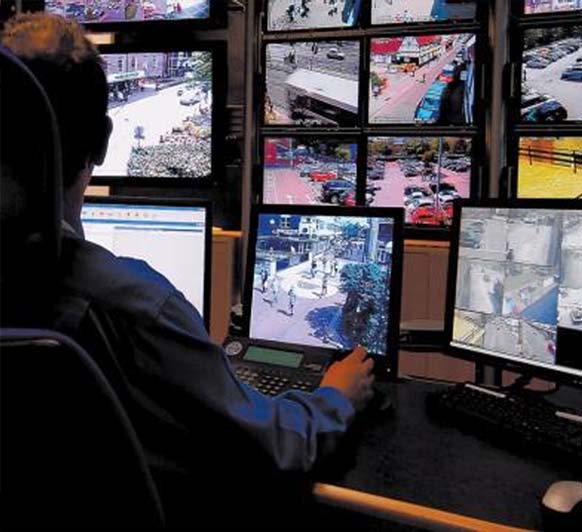
Login Into Your Account

Reset Password
Law enforcement Technology,Law enforcement Agency,Policing Technology,Smart Policing India,Homeland Security India,Border Security India,Border Management India,Cyber Crime news,Cyber Security news,Safety App,Public Safety App,Security App,Women Safety App,Police Initiative,Surveillance news,National Security news,isc event 2016,isc event 2017,scada event 2016,scada event 2017,Critical infrastructure security event 2016,Critical infrastructure security event 2017,iot summit 2016,iot summit 2017,Internet of things seminar 2016,Internet of things seminar 2017,iot seminar delhi 2016,iot seminar delhi 2017,iot conference delhi 2016,iot conference delhi 2017,top security event,security event,security event 2016,security event 2017,security conference 2016,security conference 2017,cso summit 2016,cso summit 2017,Corporate security event,Corporate security conference,security research india,homeland security research india,security think tank india
Law enforcement Technology,Law enforcement Agency,Policing Technology,Smart Policing India,Homeland Security India,Border Security India,Border Management India,Cyber Crime news,Cyber Security news,Safety App,Public Safety App,Security App,Women Safety App,Police Initiative,Surveillance news,National Security news,isc event 2016,isc event 2017,scada event 2016,scada event 2017,Critical infrastructure security event 2016,Critical infrastructure security event 2017,iot summit 2016,iot summit 2017,Internet of things seminar 2016,Internet of things seminar 2017,iot seminar delhi 2016,iot seminar delhi 2017,iot conference delhi 2016,iot conference delhi 2017,top security event,security event,security event 2016,security event 2017,security conference 2016,security conference 2017,cso summit 2016,cso summit 2017,Corporate security event,Corporate security conference,security research india,homeland security research india,security think tank india
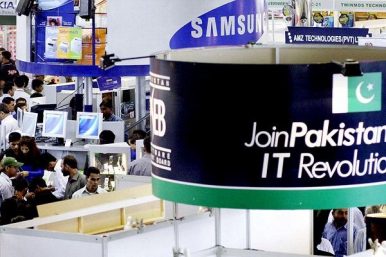
How Pakistan Is Fighting Crime and Corruption With Technology
One of the noted aspects of these interventions is that things have shifted into overdrive as far as the accessibility of public service and delivery time is concerned. At policy level, the objective behind this paradigm shift appears to be aimed at cutting down protracted and frustrating bureaucratic structures whose malfunction have largely been blamed for the “performance handicap” in the public sector.
Dr. Umar Saif, the chairman of the Punjab Information Technology Board (PITB), over the last couple of years, has made great strides toward the realization of this goal. The result has been an accelerating shift toward an unparalleled use of technology to improve good governance. In this regard, PITB has introduced a number of flagship projects in the areas of counterterrorism, crime, law, education, agriculture, and others. Moreover, a number of citizen facilitation centers have been setup across Punjab to boost the efficiency and effectiveness of services given to public.
Enjoying this article? Click here to subscribe for full access. Just $5 a month.
In the education sector, PITB’s “Smart Monitoring” initiative has proved highly effective in improving the performance of public schools by collecting real-time data on different key performance indicators. Under this initiative, each of the 36 districts in Punjab are monitored on an individual basis by the government’s monitoring officers, who are tasked with visiting and reporting on 52,695 public schools registered across the province every month. The activity of monitoring officers is geotagged to ensure their timely visits. To make the process more open and transparent and increase citizen’s participation, all collected data in this regard and its real-time performance and monitoring have been made available online for public access.
To combat terrorism, crime, and enhance the performance of police, different tech-based initiatives are being put in place. The automation of Punjab’s Counter Terrorism Department (CTD) as well as digitalization of the criminal database and suspect profiling have helped in the apprehension of number of suspects who have previously evaded justice. A few months ago, one suspect with multiple identities was recognized as one person by the Punjab police due to the effective use of a digital criminal fingerprint database, which is being implemented across the province.
Furthermore, the PITB-developed Crime Mapping (CM) software has facilitated police in identifying some of the long established and emerging crime pockets in the province. The software has also proven valuable in helping the provincial law enforcement agencies in conducting electronic crime investigations, devising better strategies to preempt, discover, and control criminal acts. Moreover, to tighten a noose around hardened criminals and terrorists, the police in Lahore has made it essential for all hotels to use the “Hotel Eye” software in order to monitor the record and information of all visitors and guests staying there. In the last two months, the city police have been able to arrest 43 criminals from different hotels in Lahore by using the software.
Above all, besides improving transparency, CM software will also help in reducing the much reported and rampant corruption in police department. In this regard, reforms related to “Paperless Policing” such as real-time monitoring of police stations, online FIR submissions and screening of the investigation progress, and biometric attendance of police personnel is being employed. Currently, the initiative is being used in Lahore but the government plans to expand it to the entire province.
The agriculture sector is another area where the provincial government is making much needed technology based interventions. Among other efforts to improve the sector, Punjab government is planning to provide smart phones to about 600,000 farmers in the province to better the output of crops.
The explosive boom of Pakistan’s IT industry has begun to penetrate into almost every sphere of public sector by offering new tools and systems to improve their performance. The trend is being noticed at all levels: Plans are underway to conduct the next national census with the effective deployment of technological methods; Pakistan Railway is preparing to computerize its ticketing system; and Pakistan customs will soon be using smart phones for snap checking vehicles on the roads, which could help in the identification of illicit smuggled goods and traders.
“Every level of government can be managed and is required to be managed using IT in this new digital world. Introduction of robust mobile technologies has made it absolutely essential for governments worldwide to introduce IT-based customer services in each department,” maintains Bilal Bajwa, a consultant and analyst at the Rockwell Automation.
Burhan Rasool, the head of software department wing at the PITB, says that “transparency and trust in the public sector can be improved by making citizens a part of the policy making process.” Rasool further asserts that “part of this can be achieved by making public the government’s working and data as a way to keep citizens informed about what is happening inside the power corridors.”
In the long run, the improved transparency, government accountability before its citizens, and effectiveness of service delivery due to these interventions will certainly increase public trust in the public sector, which is essential in strengthening the democratic process of any country.

Smart Machines will wnter mainstream adoption by 2021: Gartner
“The use of smart machines by enterprises can be transformative and disruptive. Smart machines will profoundly change the way work is done and how value is created. From dynamic pricing models and fraud detection, to predictive policing and robotics, smart machines have broad applicability in all industries,” said Susan Tan, research vice president at Gartner. “For service providers, smart machines represent opportunities to help enterprises assess, select, implement, change and adapt talent, and for IT and business processes, the opportunity to successfully adopt smart machines for business benefits.”
The opportunity for consulting and system integration (C&SI) services will range from advising enterprises to help them sort through the hype to helping with strategic design, training of the smart machines, deployment and integration to expansion and ongoing refinement. These opportunities will help drive spending on smart machine C&SI services from $451 million in 2016 to nearly $29 billion in 2021.
The spectrum of sub technologies within smart machines will be adopted at different speeds and timings, with the majority of smart technologies being mainstream adopted in the 2020 through 2025 time frame. Enterprises’ investments into smart machines will span more than a decade, implying that the smart machine C&SI service market will be a long-term one.
“Over time, the increased C&SI opportunity created by the growing number of companies implementing more complex smart machine programs is expected to be counter-balanced by the a reduction in costs of adoption, as every subsequent adoption of the same smart machine solution will be less expensive and faster,” said Ms. Tan. “In the long term (about 10 years), smart machines will be an integral set of tools in the toolkit of C&SI service providers and infused into all next-generation services offerings.”
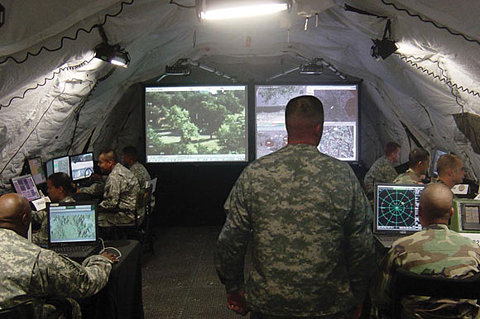
UK launches new Defence and Security Accelerator competition
The £3m competition calls for academics and businesses to create innovative solutions to overcome national security challenges.
The accelerator was announced as part of the UK's Defence Innovation Initiative.
"Our commitment to collaboration will deliver a safer and more prosperous Britain.”
Baldwin said: “The Defence Innovation Initiative and £800m Defence Innovation Fund aim to encourage imagination, ingenuity, and entrepreneurship, in pursuit of maintaining a military advantage in the future.
“This innovation challenge calls for innovators to develop new technologies to improve the UK’s ability to analyse and exploit data in order to inform decision-making.
“With a rising defence budget, and a £178bn equipment plan, our commitment to collaboration will deliver a safer and more prosperous Britain.”
The use of new technologies such as sensors and artificial intelligence is expected to give military commanders better situational awareness of the battlefield, allowing them to act faster and more effectively.
Projects initiated as part of the competition are expected to last up to six months, and initial results need to be delivered by next November.
The new capabilities will be added to the accelerator over the coming year.
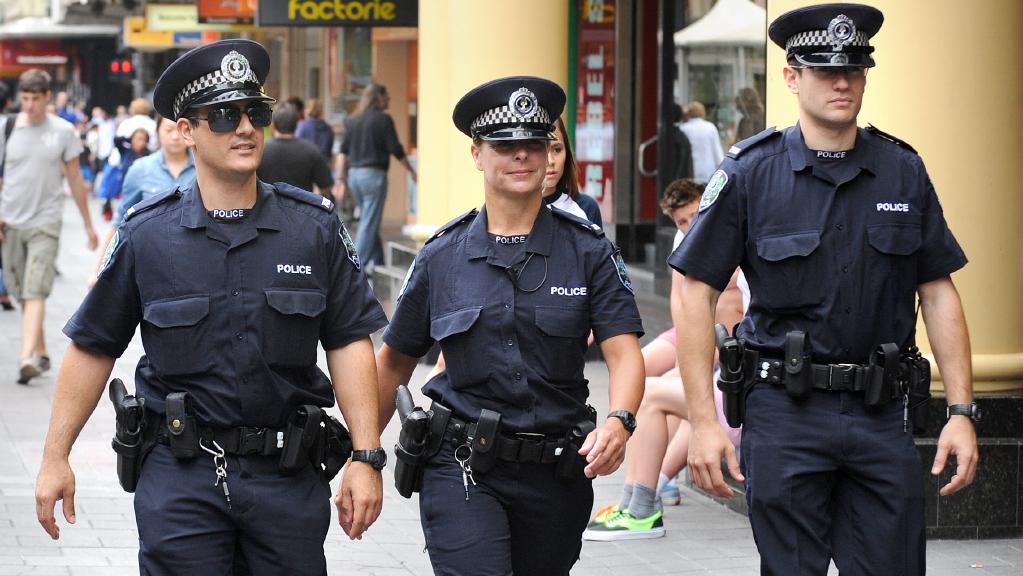
Ought to be value-based
It is imperative to bring about a qualitative change in policing and training of police. The opinion is of none other than Prime Minister Modi, which he shared with top police officials at the annual conference of DGs/AGs at the Sardar Vallabhbhai Patel National Police Academy in Hyderabad recently. His advice, coming soon after his reference to creation of smart police, has immense practical significance. It is pointer to the creation of a value-based police trained in professional skills and imbued with qualities needed to handle human problems in human setting.
The PM emphasised that both technology and human interface were equally important in policing as the security scenario in the country had changed. Several technological devices are already introduced in crime prevention and detection work as the country is able and willing to accept modernisation in this field. But, on the side of improving the human aspect of the tough and rough job of policing, our record shows rather slow progress.
The fault is not entirely in the police organisation. The society has to set the standard for policing – the mission and vision – and help police to maintain the standard in its functioning. The police and the society it serves are interdependent and must cherish mutual respect and understanding.
Presently, people-police relationship is far from cordial. People do not normally seek police help unless compelled to do so in grave crimes and losses. Public engagement in police tasks, a concept accepted in many countries, is known in India also, but not much practiced.
Modi hinted that knowledge of certain human and social sciences were necessary for policemen. He mentioned inclusion of subjects like human psychology and behavioural patterns in the training curriculum for police forces and adoption of new training modules to improve leadership skills needed at various levels.
Compulsory indoor subjects in the training of police officer presently include law, legal procedure, forensic sciences, weapons training, etc. necessary for crime control, and also lessons in leadership and management, and ethics and human rights. A qualitative change is now sought to be introduced which, if adopted with suitable programmes, will lead to establishment of community-based, people-friendly, and problem-oriented policing in the place of mechanical law enforcing and coercive police authority.
The Mission Statement of the National Police Academy states that it will endeavour to inculcate in the students such values and norms as would help them serve people better, respect human rights, and acquire liberal perspective of law and justice, high standard of professionalism, physical fitness and mental alertness.
The Vision is upholding the Rule of Law and respect for national values such as secularism, democracy, equality, and service to people, and ensuring the dignity and human rights of the citizens with sensitivity. Way back in 1968, Khosla Commission on police reforms has said that “the Constitution has laid down that people themselves are the rulers, so the police must also be the people’s police”.
Since then, several organisational changes have been made and technological innovations have been adopted in the police. The verdict of the Supreme Court in Prakash Singh case in 2006 gave seven binding directions to the States and Union Territories mostly relating to organisational matters.
Qualitative change in training is now due in all aspects of policing – crime detection and prevention and treating suspects, offenders, victims, and onlookers. The quest for quality training in police work is going on in many countries since the world has progressed from the concept of a purely police state to people’s democracy with the focus on people’s welfare. Though police in any kind of regime is a social instrument to protect life and property, it is looked upon mainly as a law-enforcing authority vested with required coercive powers to deal with people.
Laws are sought to be maintained by the police through orders, prescriptions, restrictions, prohibitions, warnings, apprehensions, and punishments. Police manuals govern day-to-day work. These forms of traditional police rule still hold good. There is need to adapt them to accommodate hard won expansion of freedoms – freedom of expression, civil rights, and human rights.
A true policeman has to observe the values of the community he serves within the parameters of law. There is, therefore, need to impart value-based training for police personnel to impart ability to respect individual and group rights while enforcing law.
Values are not mere abstract qualities. They are the guiding force of an organisation and the behaviour of its employees. They are basic to encourage excellence and to inspire enthusiasm. Organistional values stimulate quest for exemplary behaviour and a healthy competition for excellence among police personnel. They promote personal and professional standards. The police should respect the public and show courtesy while firmly discharging its duties.
The police is governed by rules and regulations for every action regarding what to do, when, and how. They have been developed over years of experience in dealing with law-breakers and criminals. There is little room for innovations and individual judgement within policy prescriptions and procedural guidelines. But a great deal of free space is available in taking cognizance of offences where police has the powers to take action without complaint. Here, the integrity and impartiality of the police personnel and the duty to preserve rights and freedoms come into play. This can be promoted by value-based policing alone. Integrity of the police is fundamental to legitimacy and public trust.
Values also help continuity of the organisation in times of turmoil and transition, regime changes, and leadership transfers. In the Indian context, values help police to stick to its principles and duties whenever government changes from one party to another. They help avoid intra-organisational conflicts.
Certain terms have come into common use to conceal common police excesses. Thus, abduction is presented as “informal arrest”, wrongful confinement as “illegal detention”, third degree torture methods as “interrogation in depth”, and police support for particular leaders/parties as “committed police”. Such excesses will have no place in value-based and quality-conscious policing.
State Governments are running State Police Academies for training State level police officials. These academies have also introduced teaching modules for qualitative improvements. The Kerala Police Academy, for instance, is planning to revise the syllabus to include modules to combat mental stress and physical fitness of the police. Yoga is already introduced in the basic training course.
We now need qualitative change in attitudes and behaviour of the police. It is necessary to train the police to be sensitive to the demands of the average citizens and to respond not only legally, but with a human touch. The goal is to make the police efficient, democratic, and humane. —INFA
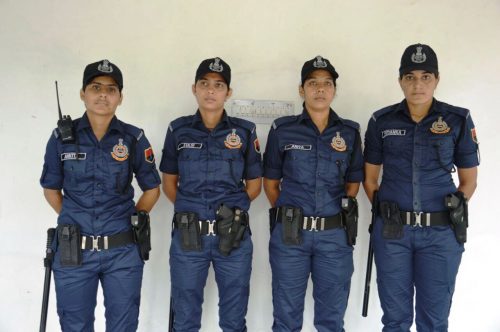
Udaipur’s Hooligans and Troublemakers Are Facing a New Terror – These Incredible Women Cops in Blue!
It’s a quiet morning for Anita Kumari, 30, and her partner, Sushila Jiloya, 24, till Anita’s mobile device crackles to life informing her of a distress call from a teenage girl. As soon as they receive the complaint – a Class XII girl is being harassed by a boy who wants to get ‘friendly’ – the duo take down her contact particulars, hop on to their bike, and jet off to meet her in person. A frank talk with the youngster reveals that she has been receiving calls at all odd hours and obscene pictures on WhatsApp. Anita takes matters into her own hands, calls up the boy masquerading as the girl, and tells him that she’s ready to meet him at a nearby park. When he arrives at the park, Anita confronts him. Then, calling her colleagues from the nearby police station, she reprimands the boy who by then is down on his knees begging for forgiveness. Eventually, he is let off with a harsh warning. In minutes, the whole problem is efficiently resolved.
Anita and Sushila are members of India’s first all-women patrol squad in Udaipur, Rajasthan, that is conscientiously maintaining a vigil at places frequented by women and girls – schools, colleges, malls, and other public spaces – to provide them with a sense of safety and confidence. A month into service, and these smart cops are already making heads turn with their smart uniforms and even smarter police moves.
Sushila, who rides pillion with Anita, identifies with the sense of fear and anxiety that women and girls go through when they have to not just bear violence but also muster the courage to report it – not the easiest of things to do. She clearly remembers how she had felt helpless when she had to face harassment day-in and day-out as she made her way to her college in Sikar.
Approaching the local constable didn’t even seem like a viable option at the time, something that she and her colleagues in the women’s squad are hoping will change.
Members of Udaipur, Rajasthan’s first all-women police patrol squad are conscientiously maintaining a vigil at places frequented by women and girls to provide them with a sense of safety and confidence. (Credit: Renu RakeshWFS)
“Women don’t feel comfortable about approaching the police until things really go out of hand. There is a lot of inherent mistrust that has set in, and that is the widespread perception that people have nowadays. We, however, are trying to change that. Gradually, we are establishing the fact that the women’s patrol squad is different. We stop by elderly people’s homes when we are patrolling localities and catch up with them just like their daughters, and talk to girls standing alone on streets to find out if everything’s okay. We try to empathise with people – it’s crucial to make them trust us,” she elaborates. In the first 30 days that they were in action, the patrolwomen received maximum complaints about sexual harassment and drunken hooligans.
The idea to raise an all-women patrol team came to Udaipur’s Additional Superintendent of Police (ASP) Thakur Chandrasheel in April this year. He had been part of two UN Peacekeeping Missions in the past, and had closely observed the policing system in several European countries.
Chandrasheel was convinced that change in the way things were being done on the ground was the need of the hour – and that women would, in fact, be perfect to spearhead it.
Rajasthan chief minister Vasundhara Raje was there to encourage the patrolwomen on their first day of duty. (Credit: Renu RakeshWFS)
Rajasthan chief minister Vasundhara Raje was there to encourage the patrolwomen on their first day of duty. (Credit: Renu RakeshWFS)
“Patrolling in India is a male domain, but in the West women are also part of community policing. After taking permission from my senior, the Superintendent of Police, I got down to planning an all-woman patrol team, because women tend to be more sensitive to community members’ needs. We wanted to take policing to people’s doorstep,” he explains.
As the team was to be picked from within the force, the first step was to identify 24 young and physically fit women constables. The chosen candidates were then told about the concept and explained how they would do more meaningful things than just being there on raids and anti-encroachment drives or escorting women prisoners to courts. After the policewomen cleared the selection process, they began a gruelling four-month training. This included aerobics and weight training, martial arts, riding and weapons training, and classroom sessions for polishing their soft skills. They also received training for first-aid for road accident survivors before rushing them to the nearest hospital. For around six hours daily, the chosen women were on the job. “We wanted them to be ready for any kind of emergency situation,” says Rajendra Prasad Goyal, Udaipur’s Superintendent of Police (SP). In the meantime, the process for an approval for a new uniform from the state police headquarters was underway.
Their khaki-clad colleagues wanted them to look different and distinct.
Two months in, these female cops are already making heads turn with their smart uniforms and even smarter policing skills. (Credit: Renu RakeshWFS)
By August, the female-only patrol team was ready, down to all the last details. These included motorcycles fitted with red-and-blue beacon lights, a P.A. system, a car battery, and first-aid box. The women in blue have their very own wireless set, an Austrian Glock pistol, fibre canes, and black golf caps.
Rajasthan Chief Minister Vasundhara Raje flagged the well-turned out patrol squad off on October 6, 2016. Over two months, the women have connected with their target group – women, children, and the elderly – and terrorised trouble-makers. “Crowds disperse when we ride by their areas – they are scared of us,” says Laxmi Choudhary, 26, who joined Rajasthan Police in 2013.
The squad works in two shifts of eight hours each. It has divided the city into five zones for patrolling. One motorcycle with two officers handles each zone from 7am to 11pm. There are five helpline numbers on which people can reach out to them, either by calling in or text messaging. The force is also available on WhatsApp so that anyone can freely share pictures and videos as evidence of problems.
For the time being, local FM stations are informing people about these numbers during their broadcast.
Soon the police department will circulate postcards containing these numbers and information about women rights in schools and colleges.
The patrolwomen ride in pairs and work in two shifts of eight hours each. (Credit: Renu RakeshWFS)
The patrolwomen ride in pairs and work in two shifts of eight hours each. (Credit: Renu RakeshWFS)
So far, the team’s work has impressed people and shown positive results. Hooligans largely keep off busy public spaces and alcohol shops close by their 8 pm deadline. Even unauthorised guides run for cover when they see flashing beacons of the patrol team. Besides controlling crime, the team resolves traffic snarls, rushes to road accident sites, and is the first response against hooliganism.
The women are stars in the city, and in their families as well. Anita shares how her 11-year-old daughter is always eager to know about her activities of the day. Laxmi adds that her mother-in-law is happy to look after her six-year-old while she’s on duty.
All over the world, policing is about protection and community management that is essentially dependent on free-wheeling interactions. There’s little room for intimidation, fear, suspicion… attributes that have become synonymous with our homegrown force. The patrolwomen of Udaipur are working towards transforming public opinion and they are doing it rather well.
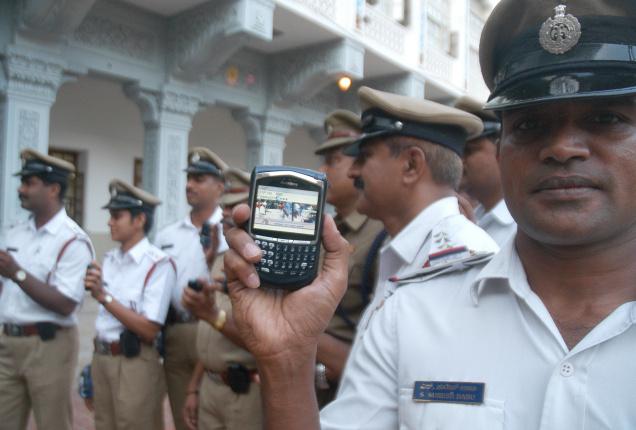
Bengaluru traffic police to soon go cashless with new smart devices
The BlackBerry handsets used earlier by the traffic policemen for enforcement will be replaced with personal digital assistants under B-TRAC phase-two. Additional Commissioner of Police (Traffic) R Hithedra said, "A couple of mobile phone companies have approached our department with device options. The new device will be introduced at the beginning of January ."
At present, there are 612 BlackBerry devices in the department to collect spot fines. Connected with a bluetooth printer, they are used by police inspectors, sub-inspectors and assistant sub-inspectors of the city.
Cubbon Park traffic police inspector Prathap Reddy N said that currently 11 BlackBerry devices are being used by ASIs and officers in ranks above at his station. He complains that the device gives technical problems during crucial times. "If the new device comes with updated technology, well-linked to the RTO and a tech-savvy swipe option, it will be good for both the officials and the public. Cashless fine will bring more transparency to the system," noted Reddy.
Ever since demonetisation, the traffic police have reduced imposition of spot fines as citizens have been complaining about the shortage of new currency. Hence, the department feels it is the right time to introduce the device and go cashless.
Electronic City traffic police inspector Made Gowda recalled, "BlackBerry was introduced in 2008 to replace the hand written carbon copy slips to bring down corruption and catch repeated traffic violators. The BlackBerry tender, which ended in June this year, was extended for six months. Even before demonetisation, most techies working in the area had been asking for swiping options to pay the fine."
With this new digital device, the money will go directly into the official account. Police personnel won't need to make manual bank deposits. The device will also display previous offences like a cancelled driving licence due to drunken driving or more such. Registration database from the transport department will also be linked to the automated enforcement centre here.
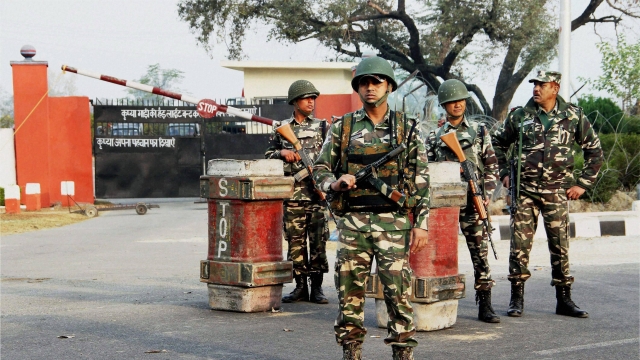
Nagrota terror attack: Martyrs' families grieve, but say they are proud
In Tuesday's terror attack, seven army personnel, including two Major-rank officers, were killed, and eight other security men, including a BSF DIG, were injured, before six heavily-armed militants were gunned down in Nagrota.
Family members of 26-year-old Raghvendra Singh, who died fighting militants in the counterattack in Nagrota, Jammu and Kashmir, said they are now more determined to raise his five-year-old son "to serve the Indian Army".
"My son is (a) five-month-old and I will raise him to serve the nation by joining the Army. If ever I get a chance, I am also ready to serve the nation," said 24-year-old Anju Sikarwar, wife of Raghvendra. She fainted when she heard about her husband's death, and while she's still grieving now, she's calm.
In Tripura, the family of Army jawan Chittaranjan Debbarma recalls how he (Debbarma) managed to call his family even as the Nagrota attack was underway.
"He managed to make a last phone call to his family before dying in a gunfight with the terrorists who attacked the Army camp", Debbarma's wife said.
"Debbarma told his relative they were in the midst of a militant attack and this was probably his last call to his family. He (the relative) clearly heard the sound of gunshots and grenade blasts over the phone, but after a few minutes the mobile phone automatically got disconnected," the martyr's wife was quoted as saying by a local TV channel.
And Karnataka's martyr Major Akshay Kumar had wanted his daughter to be inspired from young Kashmiri kick-boxing champion Tajamul Islam.
"Heard her (Islam) speaking on TV after a fantastic medal and so proud of this young girl! When Naina (his daughter) is old enough to understand, hope she will be inspired by real achievers like Tajamul," is what Kumar told his mother, she recalled in a Facebook post.
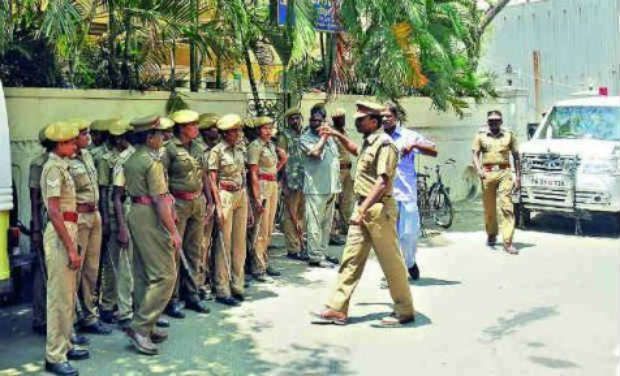
Rope in IITians for cybercrimes probe
Arguing for reform to create a strong and efficient policing, the report, titled “Building Smart Police in India: Background into the Needed Police Force Reforms”, calls for capacity and infrastructure building, legislative and administrative changes besides technological scaling up.
Noting that specialised crimes need specialised approach and personnel to deal with, it calls for students with Masters in Computer Application or those passing out of the IITs to be recruited as sub-inspectors and inspectors to handle cybercrime.
Insisting that such recruits should work in plain clothing to avoid detection, the report also says social crimes like beggary, prostitution, crimes against women, and domestic and dowry-related violence should not be handled routinely by traditional policemen.
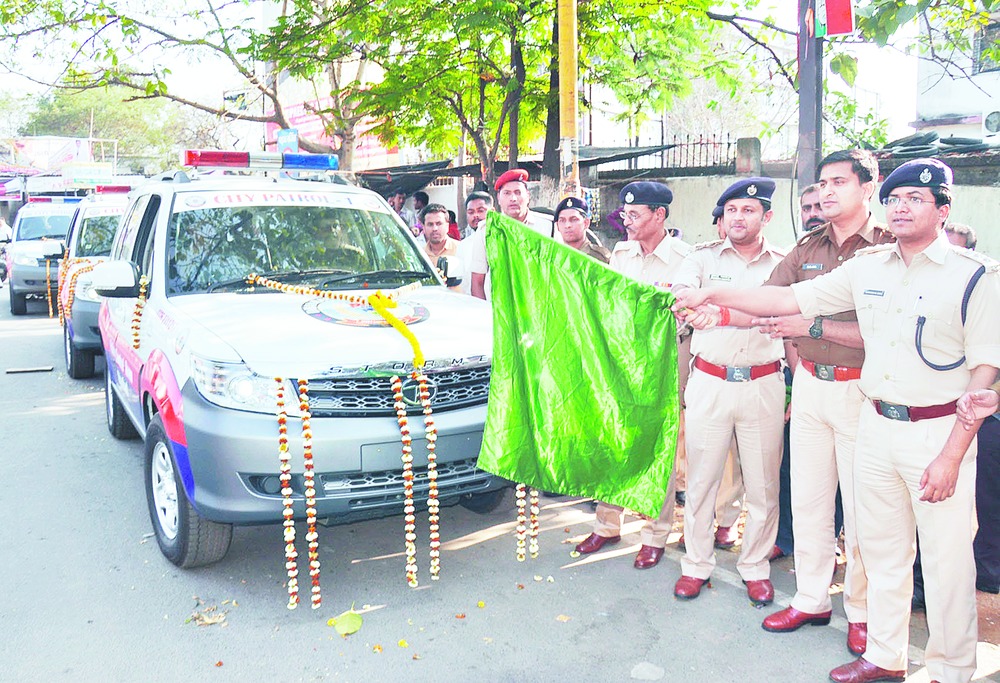
Cops to get 10 mobile camera vans for policing
The mobile camera van is set to compliment the Drone-mounted cameras, highlighted in TOI in November 9 edition, which too would be procured as a part of the smart city police project. While the drone cameras are set to relay aerial footages of the mob, the mobile camera vans are expected to perform similar task at the ground level.
The various facets of Smart City policing, including mobile camera van, was highlighted in a presentation by senior PI Ashok Bagul, appointed as nodal officer, at police gymkhana on Tuesday during a crime meeting.
Its learnt that the mobile camera van would be equipped with sophisticated 20X zoom PTZ (pan, tilt and zoom) camera. The vehicle would be also equipped with a public addressing system and video recording facilities. The well-equipped cameras, mounted on the vans, will also have night vision and infrared facilities.
"The cameras of the mobile vans shall capture distant images including faces of the suspects," said a senior officer. The feedback of the mobile camera vans would be relayed to the control room in a giant screen for close observation.
The Smart City police project would also have provisions of installing thermal cameras at sensitive locations and vital installations. "The facilities would start trickle in within next six months," said the senior officer.
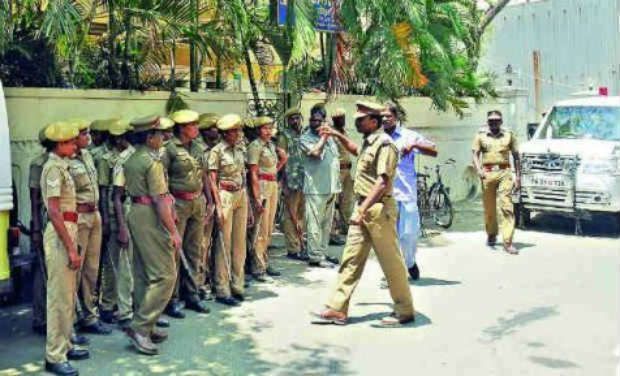
Visakhapatnam police to launch website as part of smart policing
City police chief Amit Garg said that so far Vizag city police does not have an official website. The new website of the city police commissionerate is nearing completion and will be open to the public within a few weeks. For the first time in AP, the website will have more options. The idea behind the website is that most of the services of police can be done online and people can even view the status of their application, he said.
Sources in the police said that the traffic police wing has been negotiating with a few nationalised banks for filing of traffic e-challans the online way. The cops are also chalking out plans to seek feedback from the public online whenever they embark on new traffic restrictions and few others to regulate traffic. In a recent meeting, Chief Minister N. Chandrababu Naidu made it clear that there is urgent need for the police to go hi-tech in Vizag and Vijayawada as both the cities have gained much importance.
Newsletter
Sign Up for Monthly Newsletter
Recent Tweets
CONTACT US
Crux Center for Security
Research and Events (CCSRE)
3rd Floor, Tower-B, Unitech Cyber Park
Sector 39, Gurugram,122022
0124- 4207903, 05, 06
Copyright © 2016 Crux Center For Security Research And Events (CCSRE) | All Right Reserved
